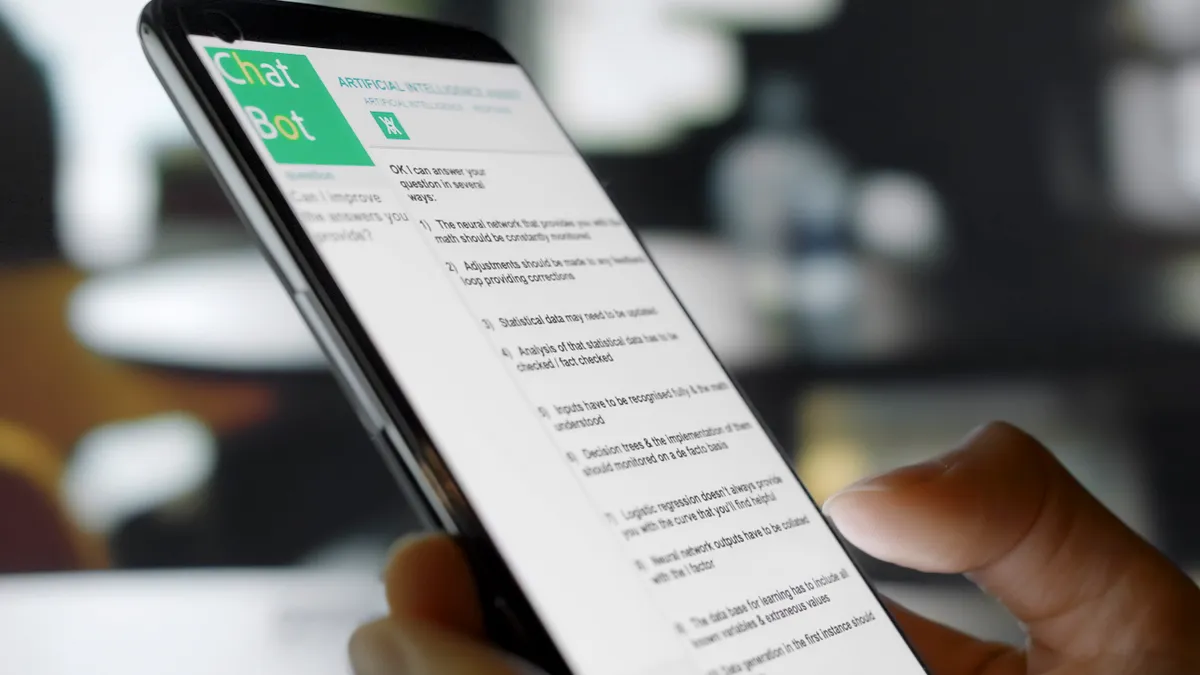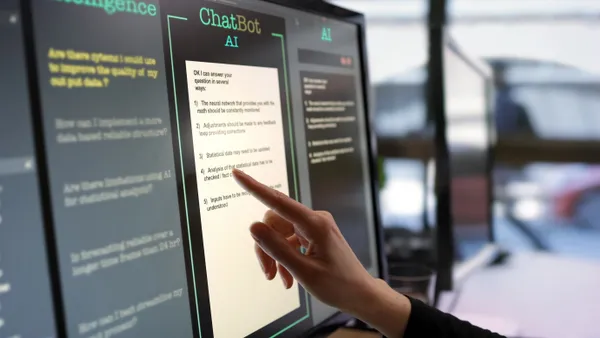Dive Brief:
- More than half of U.S. businesses employ AI in customer service software, including chatbots and personal assistants, according to a Capterra survey of over 2,300 employees, published Monday.
- Three in 5 employees believe such software has a positive impact on customers, most notably in providing faster response times, cost savings and increasing satisfaction.
- But the technology has some downsides. Employees said the biggest challenges were maintaining customer trust, ensuring accuracy and not alienating customers.
Dive Insight:
As more businesses implement AI, they have to convince resistant customers of the technology’s usefulness.
Customers are generally wary of AI, with 3 in 5 saying they don’t believe the benefits outweigh the risks in a KPMG survey released earlier this year.
“People mistrust things they don't understand,” CX expert Bruce Temkin told CX Dive earlier this year. “Maybe they say I mistrust AI doing X, Y and Z for my account, but that mistrust goes away once they use it and it gives them benefit. There's a gap between what people understand and what people have experienced.”
In other words, businesses still need to prove AI's worth.
The key is identifying when AI-powered services can help and when a live agent is the best course of action — and routing customers accordingly, said Laura Burgess, senior analyst at Capterra.
Businesses can direct customers to AI for tasks that it can easily handle — usually more repetitive and simple tasks. When a customer easily has their issue resolved via a chatbot, for example, they are more likely to trust it in the future.
Live agents are usually better for complex and personal inquires, however. Three-quarters of customer service employees say agents are better at personalizing interactions,according to Capterra.
Being forthcoming about AI use and giving customers choice can also build trust. About half of respondents said that companies should give customers the choice between AI and live agent aid.










